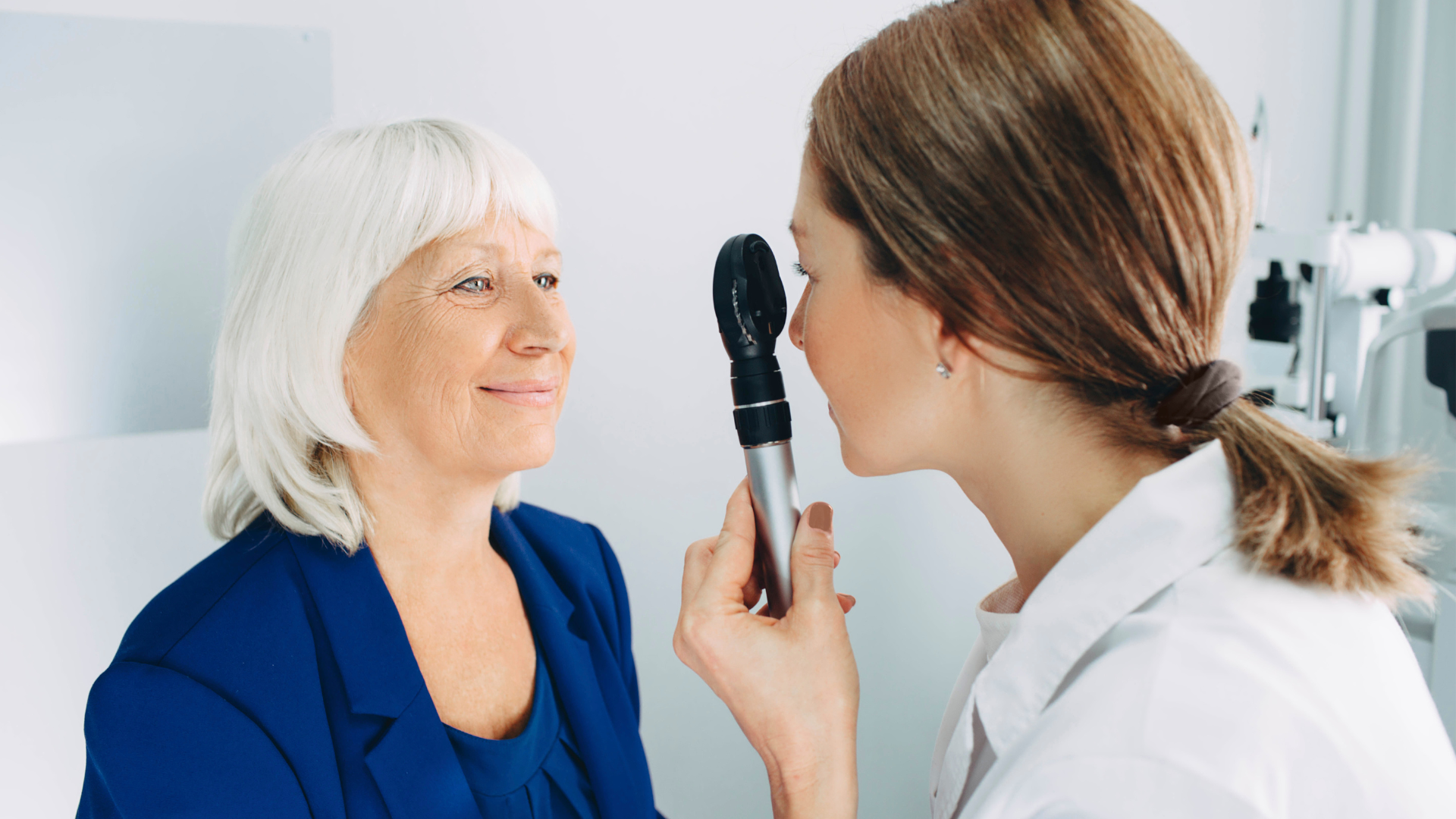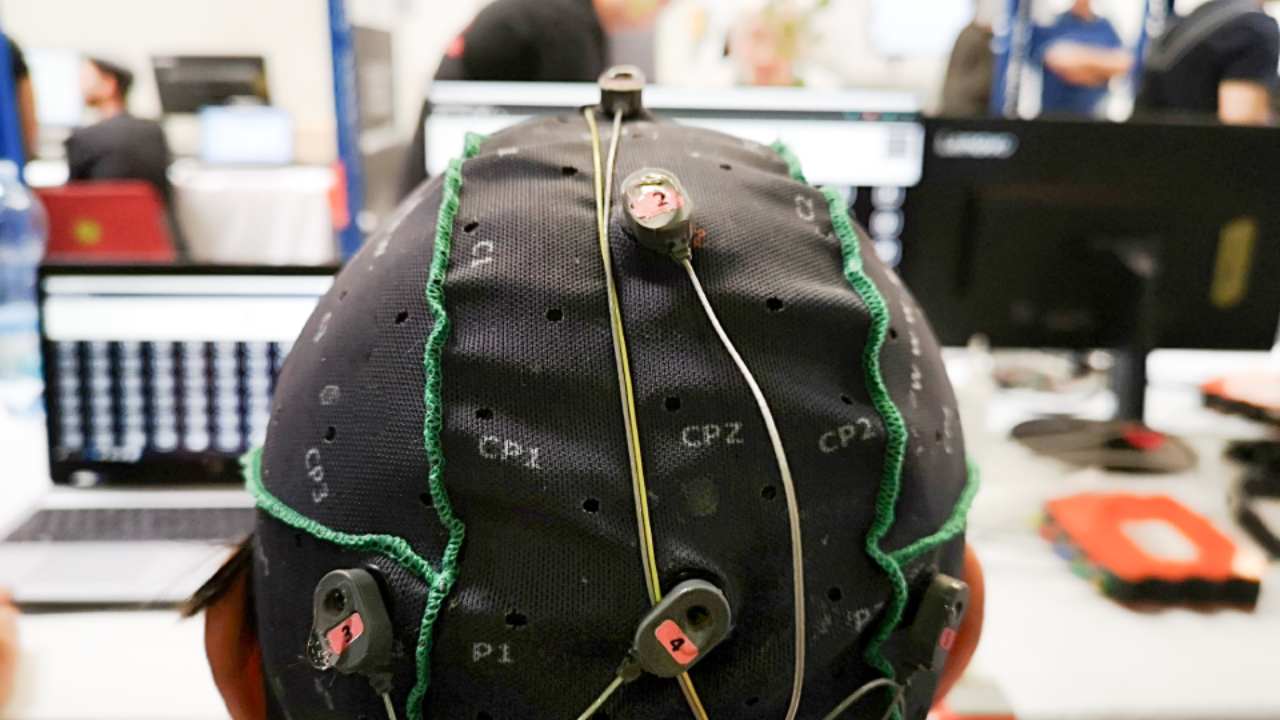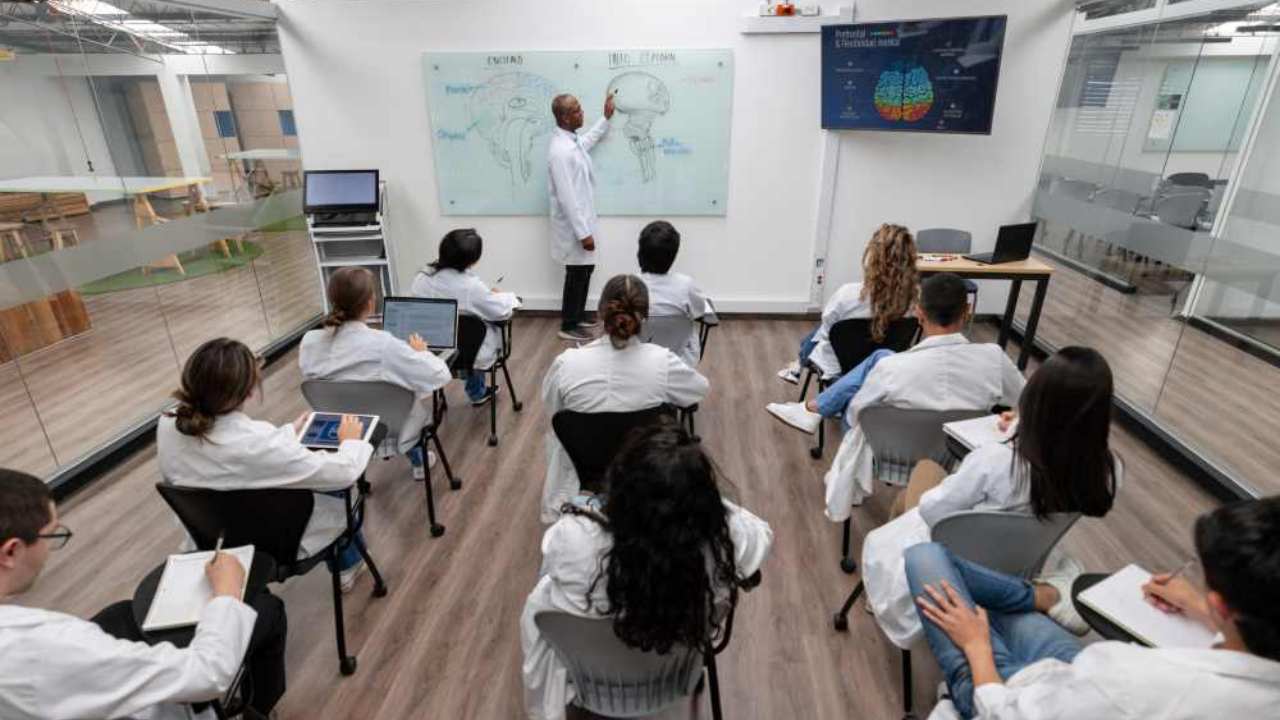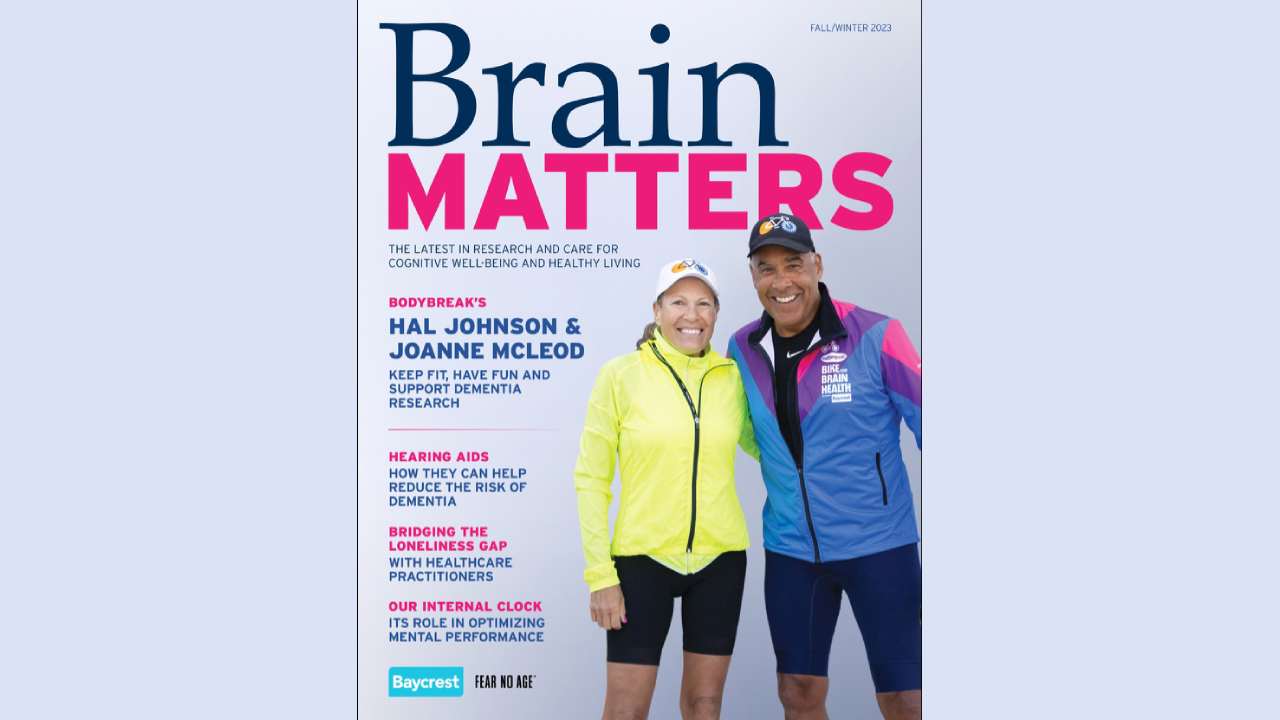Topics

Vision loss is now recognized alongside hearing loss as a potentially modifiable risk factor for dementia. Adults over 65 with vision loss face nearly a 50% higher risk of developing dementia, but correcting vision problems can significantly lower that risk. Other contributing factors include physical inactivity, smoking, diabetes, hypertension, and social isolation.
Experts aren’t exactly surprised that vision loss is on the list, since hearing loss has long been linked to dementia and is already considered a modifiable risk factor. Research now shows that even mild to moderate impairments in either sense increase dementia risk.
This raises a key question: How did vision loss come to be viewed in the same category, and how do these two sensory impairments interact in the context of dementia risk?
Let’s take a look.
How Hearing and Vision Problems Contribute to Dementia
Hearing and vision problems affect the brain in several ways. Reduced sensory input leads to less stimulation, which makes brain tissue more vulnerable to atrophy. The auditory cortex sits near regions most damaged in Alzheimer’s disease, while visual information activates multiple brain areas. Underuse of these networks accelerates shrinkage and disrupts function.
Sensory impairment also changes behaviour. People may withdraw socially, increasing loneliness, a known contributor to cognitive decline. As one expert explained, “Vision loss keeps you from going to the party. Hearing loss means you go, but stay silent in the corner.” In reality, many people with hearing loss also start avoiding noisy social settings altogether, so both forms of impairment can ultimately lead to isolation.
Finally, when the brain works harder to interpret blurred vision or unclear sounds, fewer resources remain for memory and thinking. For those already in the early stages of dementia, this strain can bring symptoms to the surface sooner.
It is important to note that sensory loss does not directly cause dementia. Instead, it contributes to biological and behavioural pathways that increase vulnerability. Reduced stimulation accelerates brain atrophy, social withdrawal limits cognitive engagement, and extra processing demands strain memory and attention systems. Together, these factors create conditions in which dementia is more likely to develop or progress more quickly.
Why Addressing Sensory Loss Matters
Given these links between sensory decline and dementia, researchers have turned attention to how treating vision and hearing problems may protect cognitive health.
Vision Loss
Conditions such as cataracts, macular degeneration, and diabetic retinopathy are strongly associated with higher chances of developing dementia. The degree of impairment corresponds to the likelihood of decline.
While not all vision problems can be reversed, treatments that restore sight significantly improve long-term outcomes. Even common refractive errors like near- or farsightedness contribute to cognitive decline when left uncorrected. Yet, people who wear glasses or contact lenses do not face the same vulnerability.
Hearing Loss
Hearing declines gradually from early adulthood, shaped by genetics and noise exposure. Mild loss makes whispers hard to detect, while moderate loss mainly causes trouble understanding speech in noisy settings, such as crowded restaurants or large gatherings – approximately 63% of adults over 70 experience clinically significant hearing loss.
Hearing aids provide meaningful support. Studies show older adults who use them experience nearly 20% slower cognitive decline than those who do not. A major clinical trial confirmed that high-risk individuals who wore hearing aids for three years preserved stronger thinking abilities compared with those without them. The benefit comes from slowing deterioration rather than reversing damage.
Lifestyle Interactions with Sensory Health
Hearing, vision, and brain health are closely tied to overall vascular health. Reduced blood flow to the retina, cochlea, or brain increases the likelihood of sensory decline and dementia. Managing blood pressure, cholesterol, and blood sugar, therefore, protects both sensory and cognitive systems.
Lifestyle choices also influence sensory health. Diets rich in omega-3 fatty acids, leafy greens, and antioxidants support eye and ear function, while regular physical activity improves circulation and resilience of both sensory and brain tissue.
Sleep quality plays an additional role. Disrupted sleep reduces the brain’s ability to process and restore itself, while adequate rest helps maintain both sensory function and cognitive reserve.
Visual and Hearing Loss Dementia Prevention: What To Do If You’re Concerned
Begin with regular testing. Ensure you’re going for annual dilated eye exams and routine hearing checks, either in clinic or with a validated at-home app.
If you identify any problems, act quickly. Cataracts can be corrected with a straightforward procedure, while hearing aids are widely accessible.
With treatment in place, prevention becomes the focus. Protect your hearing by:
- Limiting loud noise
- Using ear protection
- Quitting smoking
- Testing regularly
For vision, maintain eye exams and wear prescribed glasses or contacts to reduce strain.
Practical strategies can further help. Face-to-face communication, good lighting, and minimizing background noise make daily interactions easier. Assistive technologies, such as captioning apps, magnifiers, or cochlear implants, provide additional support. Rehabilitation programs, such as audiological training or vision therapy, also help people adapt and maintain independence.
Supporting Loved Ones With Sensory Loss
Family members are often the first to notice early signs, such as withdrawal from group activities, frustration during conversations, or avoidance of noisy settings. One way families can help is by encouraging testing and treatment.
Ongoing support, like attending appointments together, adjusting the home environment, or using structured communication, reduces stress for everyone involved. Patience and consistency are essential, since adapting to new devices or therapies can take time.
Key Takeaways on Sensory Loss and Dementia
Dementia remains without a cure, which makes prevention and slowing decline the most effective strategies. Hearing and vision loss are now recognized as important, potentially modifiable risk factors, alongside smoking, diabetes, and hypertension. Addressing these sensory changes matters for both long-term brain health and normal daily functioning.
Treatments such as cataract surgery, corrective lenses, and hearing aids have been shown to reduce the likelihood of faster cognitive decline, helping people stay more socially engaged and cognitively active. Yet, sensory interventions are still underused in those already living with dementia, and when hearing and vision problems occur together, managing symptoms becomes even more complex.
Evidence consistently shows that early detection and timely treatment of sensory changes have the greatest impact. Maintaining hearing and vision helps preserve independence in the present while also reducing vulnerability to future decline.
Frequently Asked Questions
Does untreated hearing loss cause dementia?
There isn’t a single factor that causes dementia, but studies show that untreated hearing loss and dementia are strongly associated. People who address hearing loss with hearing aids or other interventions show slower rates of cognitive decline compared to those who do not.
Can hearing aids reverse dementia?
No, hearing aids do not reverse dementia. Hearing aids cannot cure dementia or restore brain cells that have already been lost to the disease. They also do not guarantee protection, as dementia involves many risk factors beyond hearing loss. However, hearing aids can play a crucial role in managing risk and slowing the progression.
Does cataract surgery lower dementia risk?
Yes. Several studies have shown that restoring sight through cataract surgery is associated with lower rates of cognitive decline, likely because it enhances sensory input and supports ongoing brain stimulation.
Is tinnitus linked to dementia?
Research suggests an association between tinnitus and cognitive decline, though the connection is less clear than with hearing loss. Tinnitus may contribute indirectly by disrupting sleep, concentration, and social engagement.
At what age should hearing and vision testing start?
Routine eye exams are recommended from middle adulthood, with yearly exams after age 60. Hearing checks are advisable beginning in your 50s, or earlier if symptoms appear.
Related Articles: Brain Matters, Research, Care









